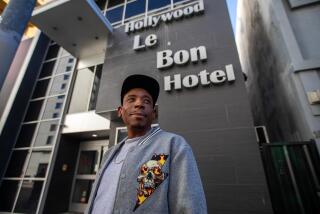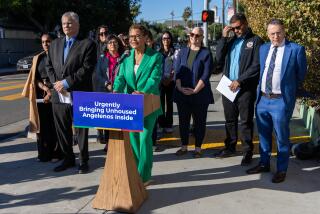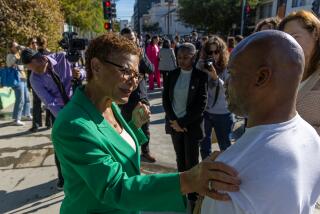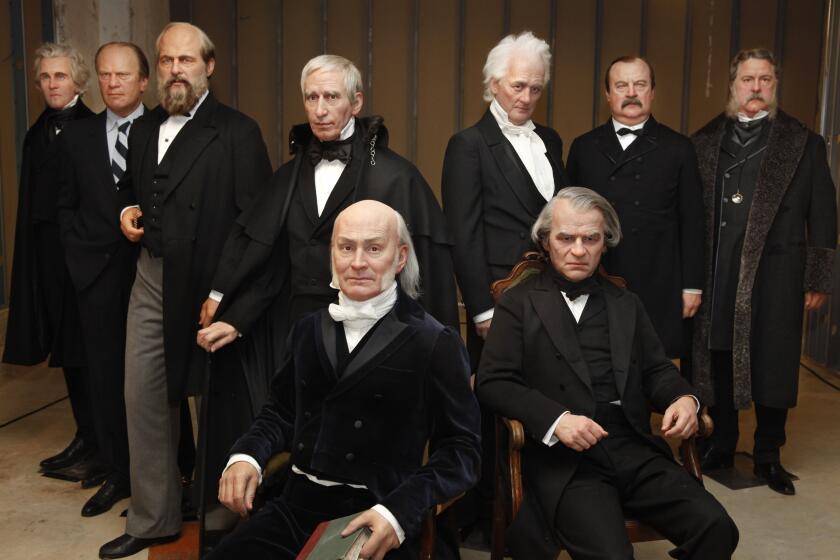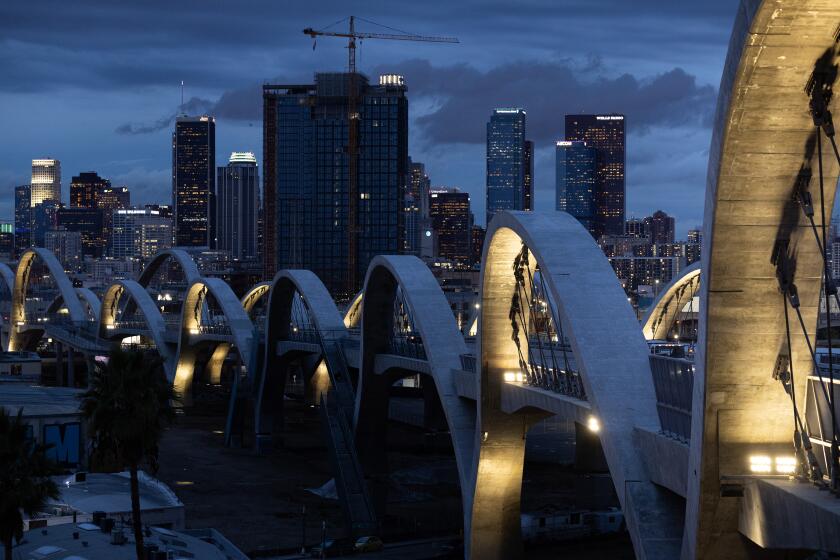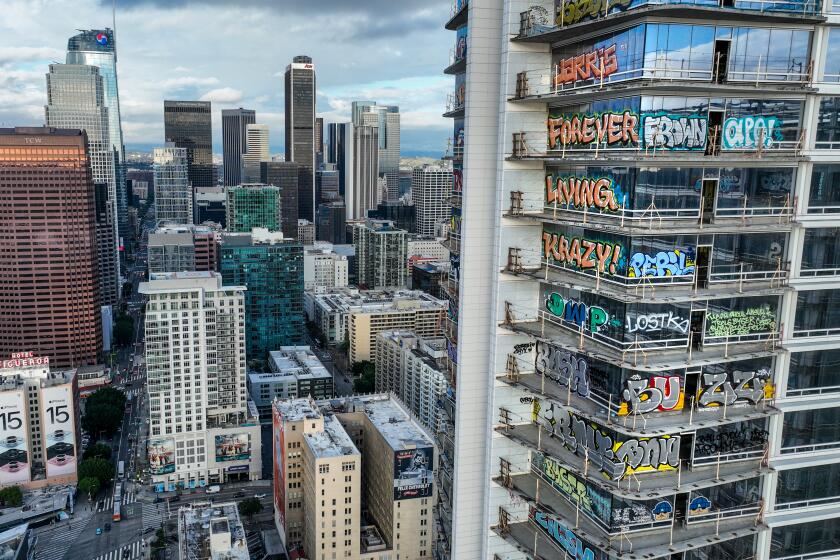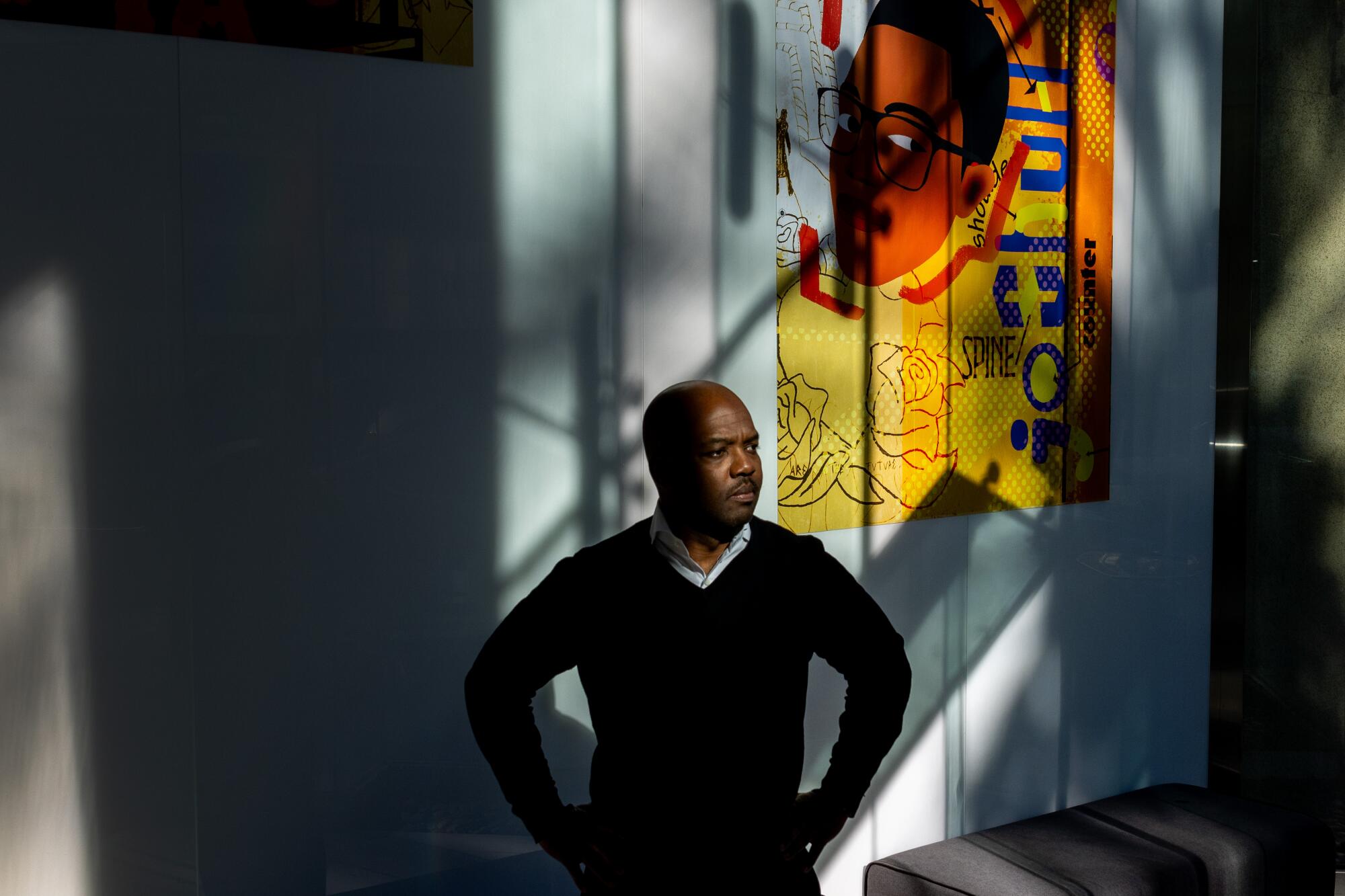
All across the Academy of Media Arts, there are signs of an active campus life.
School projects are still plastered on the walls; books are strewn on tables; apples sit uneaten in the cafeteria.
What is missing are the students — some 50 ninth- through 12th-graders, many from low-income Black and Latino families, who were forced to scramble after the private high school in downtown Los Angeles abruptly shut its doors Jan. 15.
The school occupied the first three floors of the L.A. Grand Hotel, which since 2021 has been used as temporary housing for hundreds of homeless Angelenos. The school’s founder, Dana Hammond, filed a breach of contract lawsuit in January against the building’s owner, claiming that the presence of so many homeless people made the campus unsafe, forcing it to close.

In an interview, he also blamed Los Angeles Mayor Karen Bass for repeatedly extending the city’s lease at the property for her Inside Safe interim housing program.
“Human poop on sidewalk. The smell of urine across campus. Outburst from ‘Inside Safe’ tenants. Break-ins by ‘Inside Safe’ tenants. Drug paraphernalia found on campus. ‘Inside Safe’ tenants found in trash bins,” read comments left on a classroom whiteboard.
Asked about Hammond’s allegations, Clara Karger, a spokesperson for Bass, said in a statement that the city heightened security at the Grand by installing more fencing, conducting on-site visits to address the school’s concerns and collaborating with the academy’s security personnel to respond to urgent calls.
When Hammond signed the lease to move his school into the L.A. Grand in 2022, it was the culmination of nearly two decades of work.
His school, which began in a South Los Angeles church, now had its own space where the students could have access to state-of-the-art facilities.
After an aggressive recruiting campaign pushed the student body up to 250, a mass exodus began, dropping the enrollment to around 50. Hammond said that by mid-January, he was unable to pay the $100,000 monthly rent.
Reports compiled by school security and reviewed by The Times describe incidents involving the hotel’s residents, including a man threatening to fight security outside the school’s gate; a woman exposing herself to students at 9:30 a.m.; another woman lying completely naked behind the school, who threatened to “shoot and stab” a security officer when confronted; a man who broke into the school through the back.
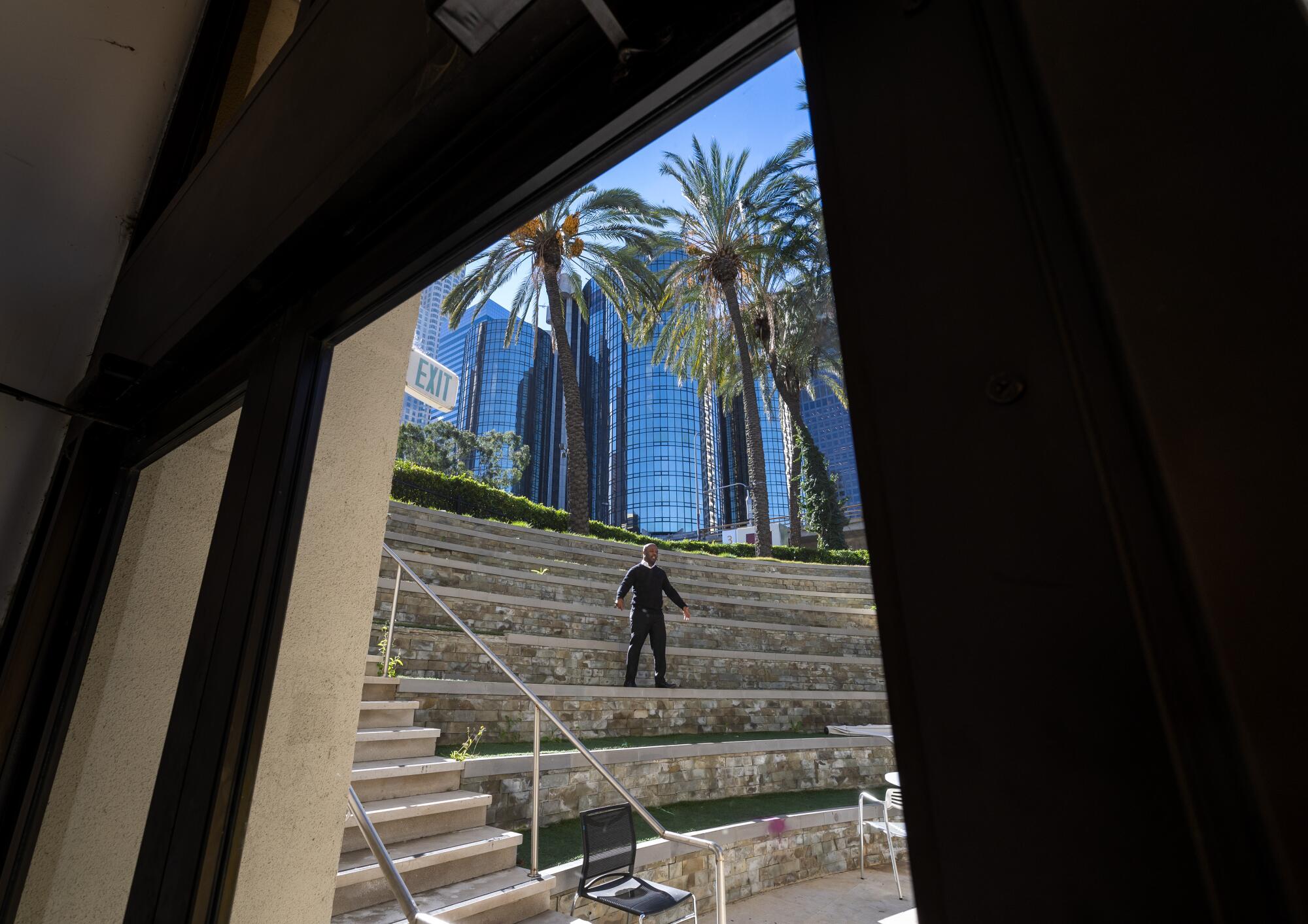
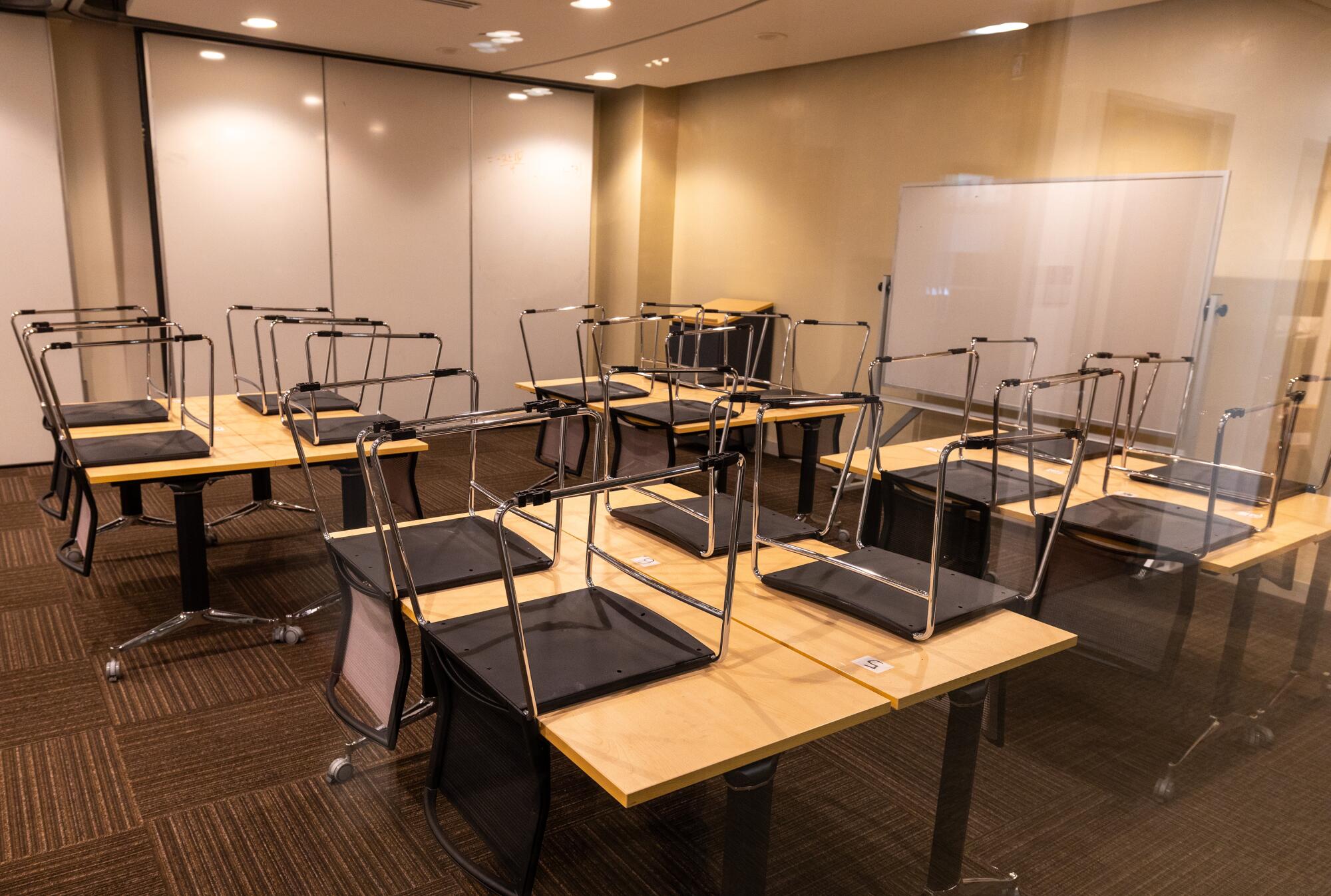
“Our students’ lives were in jeopardy because of the Inside Safe residents,” Hammond said. “We’re not enemies of the homeless shelter, we just can’t put them in the same building as a high school.”
But records reviewed by The Times show that the school had long struggled with problems not directly connected to the homeless presence.
For years, the academy operated as a Los Angeles Unified School District charter school, which meant it received funding from the California Department of Education but maintained a level of autonomy over its operations. As a private school, the school obtained funding through donors and tuition.
The academy had been scrutinized by LAUSD for failing to meet academic standards as students fell behind in subjects such as math and English. The school also failed to do proper criminal background clearances for teachers and had seven different principals over a four-year period, according to LAUSD records.
“The charter school’s current academic performance levels are not meeting the academic needs of its students,” the LAUSD’s Charter School Division wrote in a “notice of violation” report on the Academy of Media Arts in April 2023.
While Hammond disputed the allegations, the school converted from charter to private later that year.
LAUSD officials did not respond to requests for comment on the district’s former relationship with the academy.
Hammond didn’t directly respond to The Times inquiry about the notice of violation, sharing instead a document from 2020 that detailed how the academy would address concerns over teacher credentialing.
In the lawsuit, Hammond claimed that the hotel’s owner said the homeless residents would be moved out soon after the school moved in. But that did not happen.
The hotel is owned by Chinese billionaire Wei Huang, whose real estate company, Shen Zhen New World I, was found guilty of fraud and bribery charges in connection with the corruption case involving disgraced former Councilmember José Huizar.
A judge fined Shen Zhen $4 million.
Huang was charged with bribery and fraud in the case. He fled the country after the FBI began executing search warrants in 2018 and is considered a fugitive by the U.S. attorney’s office.
“Huang repeatedly made false and misleading representations to suggest that the L.A. Grand Hotel would cease to be a homeless shelter in the near future, despite the fact that Huang had no intention of terminating the lucrative agreement,” wrote lawyers for Hammond and Dennis L. Smith, who hopes to open a nightclub on the roof of the hotel and joined Hammond in the lawsuit.
Russ Cox, a representative for Huang’s company and himself a defendant in the case, declined to comment.
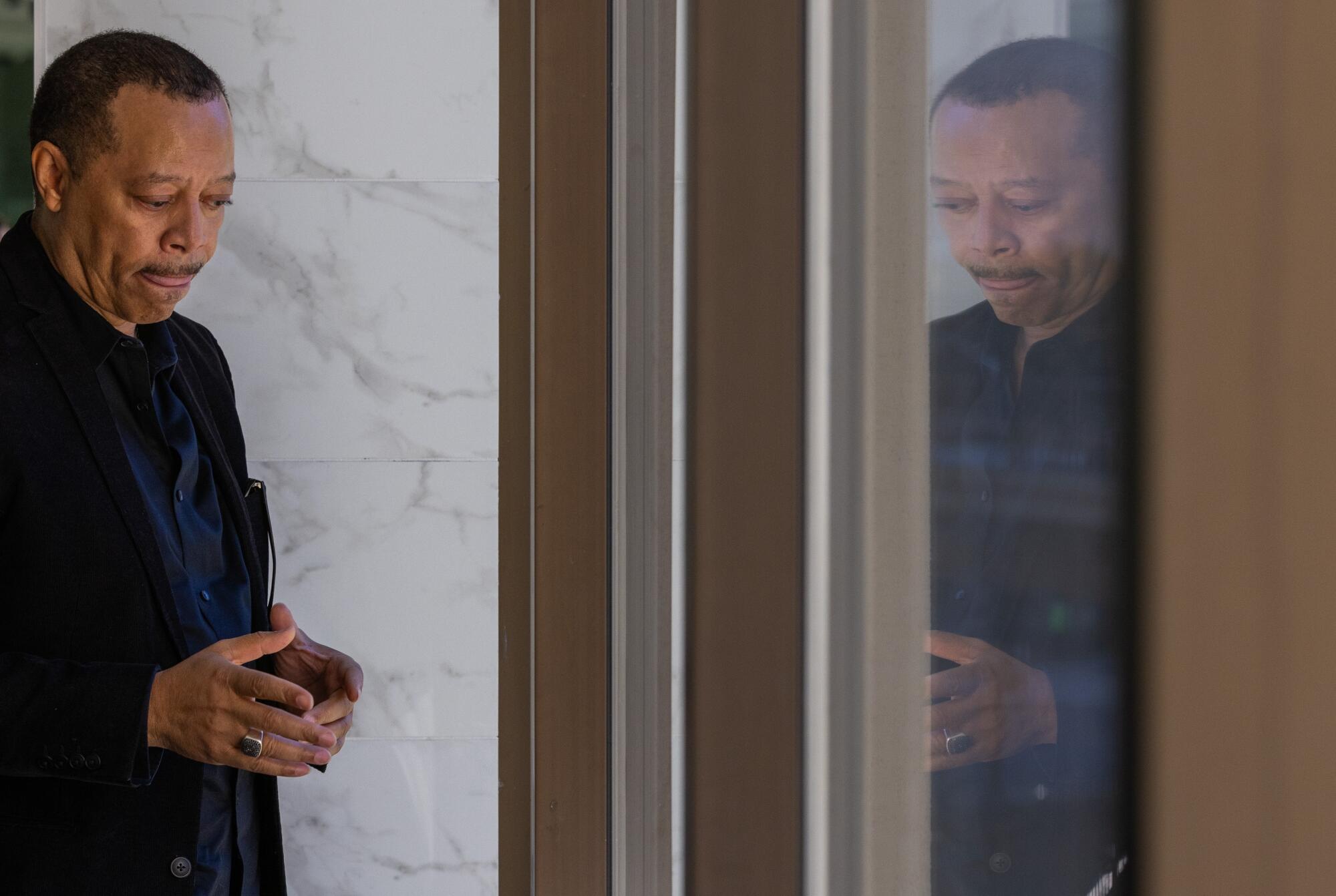
Huang acquired the Grand in 2010, operating it as a four-star, 14-story hotel described on social media as an “urban oasis.”
In 2021, the Grand became a site for Project Roomkey, a federally funded program that provided shelter to unhoused people at the height of the COVID-19 pandemic.
The city has paid Shen Zhen more than $25 million since the academy opened at the site in 2022, according to city records.
“The mayor’s office does not condone the behavior of the fugitive owner of the Grand,” Karger, the mayor’s spokesperson, said in a statement to The Times.
The city continued operations with L.A. Grand — and added more residents — after Bass took office in late 2022, even with the academy already present at the building.
The city extended its lease to continue operating the shelter through the end of July. The extension will cost $20 million, including $13.9 million for the lease and food and $6.8 million for services, according to the city records.
The mayor’s office did not respond directly when asked by The Times whether it might seek further extensions beyond July 31. In a statement, Karger said the L.A. Grand’s residents are expected to begin moving to the Mayfair Hotel in May.
“The L.A. Grand has brought hundreds of unhoused individuals inside from the tough elements of living on the streets. The work continues to save lives every day,” Karger said.
Around the school the sidewalks are strewn with garbage, empty liquor bottles and even discarded syringes. The sign welcoming visitors to the Academy of Media Arts is graffitied over.
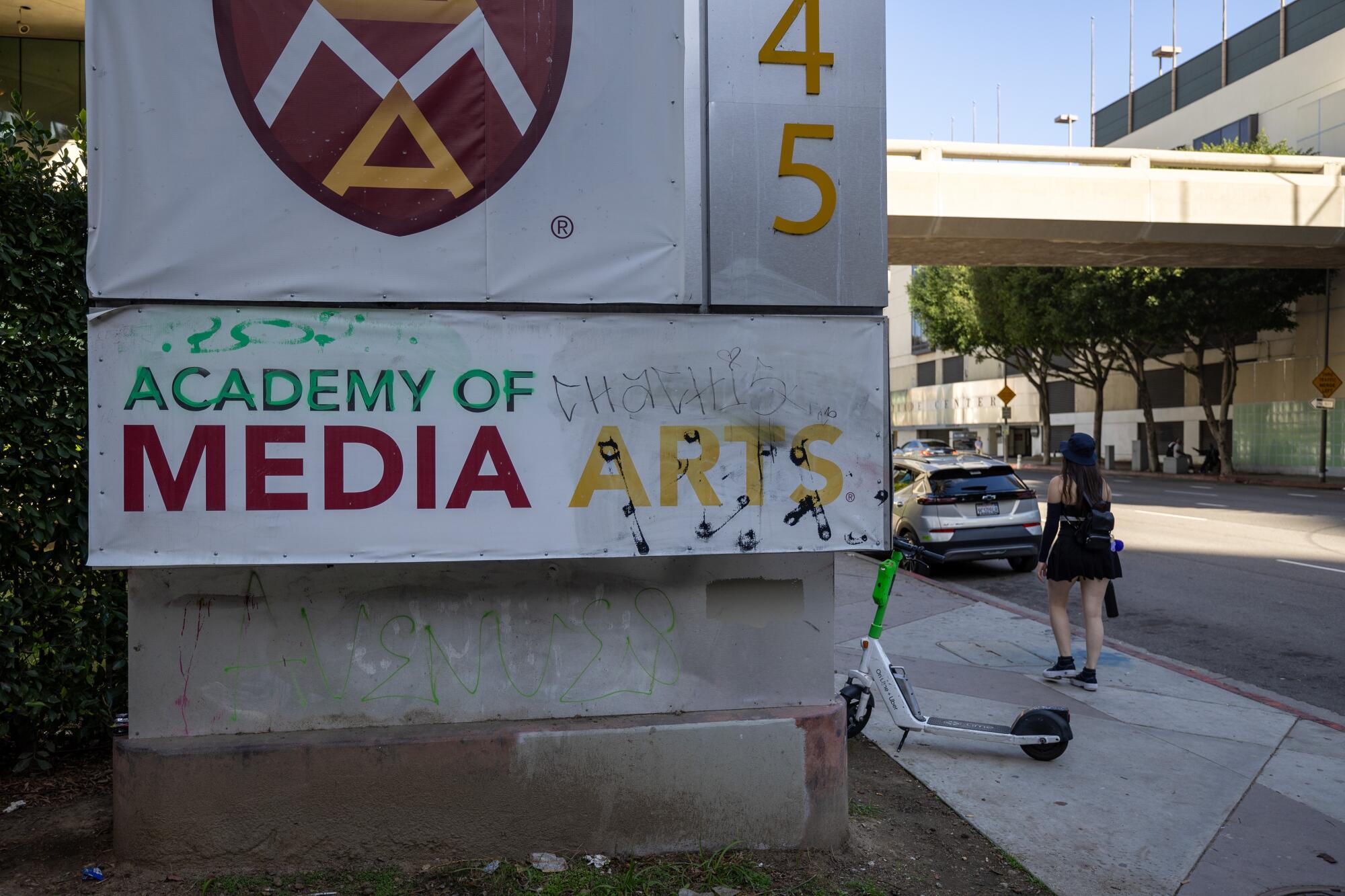
“We moved from the church to the hotel, which I thought was a wonderful idea before I found out about the homeless shelter,” said Mary Tascian Williams, who worked at the school from June 2022 until it shut down.
Williams said she used to spend much of her day walking the floors making sure no one broke into the school.
On Jan. 10, an intruder broke into the school lobby just minutes after students had gone to lunch in a different part of the campus.
When approached by the security guard, the man said, “They are trying to kill me,” according to an school incident report.
It took numerous LAPD officers to subdue him, the report said.
Hammond said the episode left students afraid and him at a loss for how to protect the teens. On Jan. 12, Hammond and more than a dozen students went to a City Council meeting to speak about the problems.
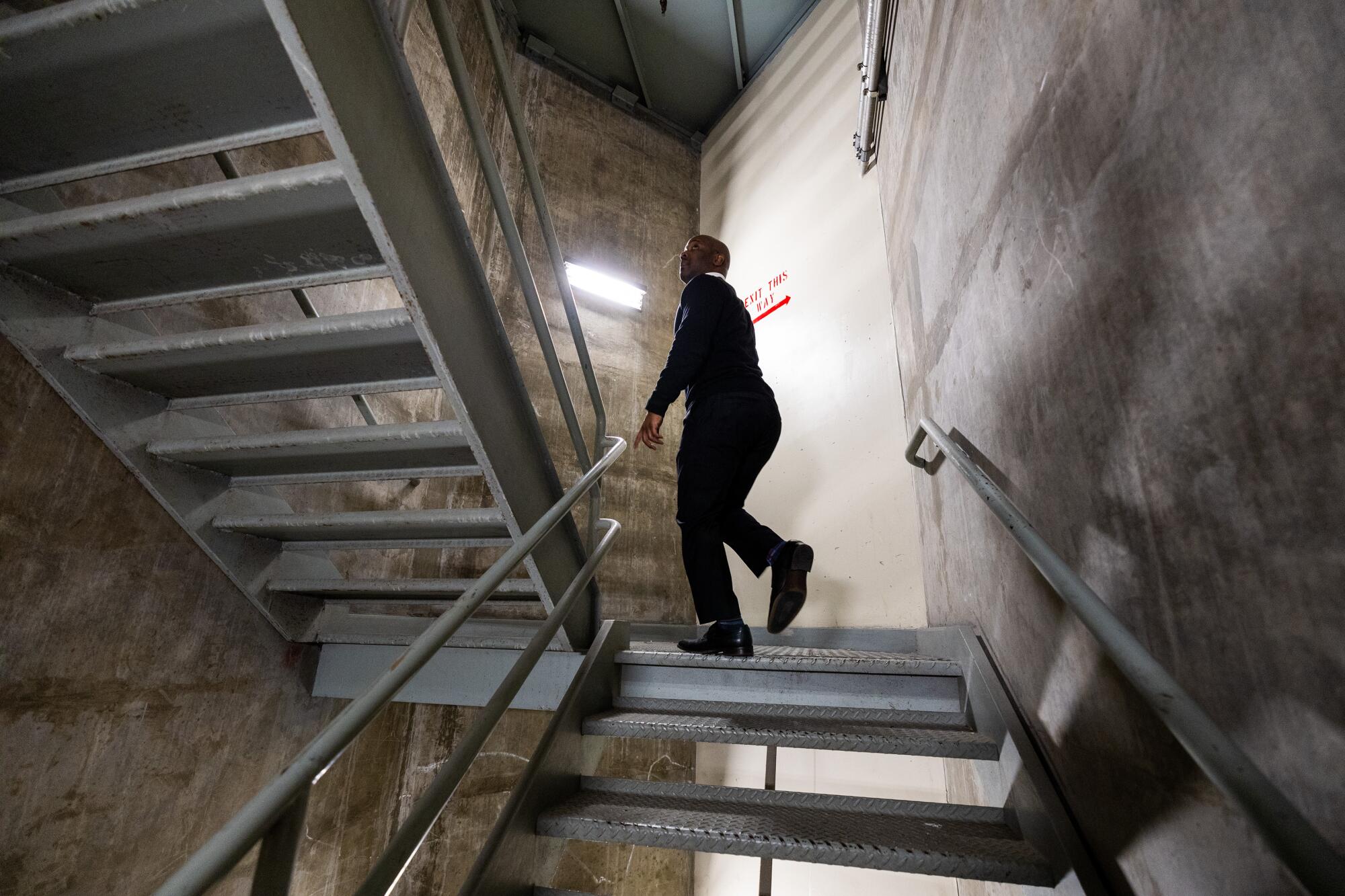
He met with Councilmember Kevin de León, who spoke about the issue at the meeting and toured the school that night.
“The location raised legitimate and serious concerns for students, faculty, and staff, especially regarding breaches into the school by the residents of the Grand,” De León told The Times in a statement. “It was my hope in meeting with parents and administrators that we could avoid the school’s closure which has become a real tragedy for Black and Brown students and parents alike.”
At the hearing, De León questioned the mayor’s office on when it planned to exit the Grand and move Inside Safe participants into the Mayfair Hotel. Officials did not provide a timeline.
“When the mayor first took office in December 2022 we were very much aware there were security concerns, public safety concerns,” Lourdes Castro Ramírez, the mayor’s chief housing and homelessness officer, said at the council meeting. “There were immediate actions taken to increase security, bring in service providers. … I take their concerns very seriously and plan to follow up to better understand how to resolve these issues.”
Her comments came after three students cried at the council meeting. Others spoke about how much they loved the school and how sad they would be to lose it.
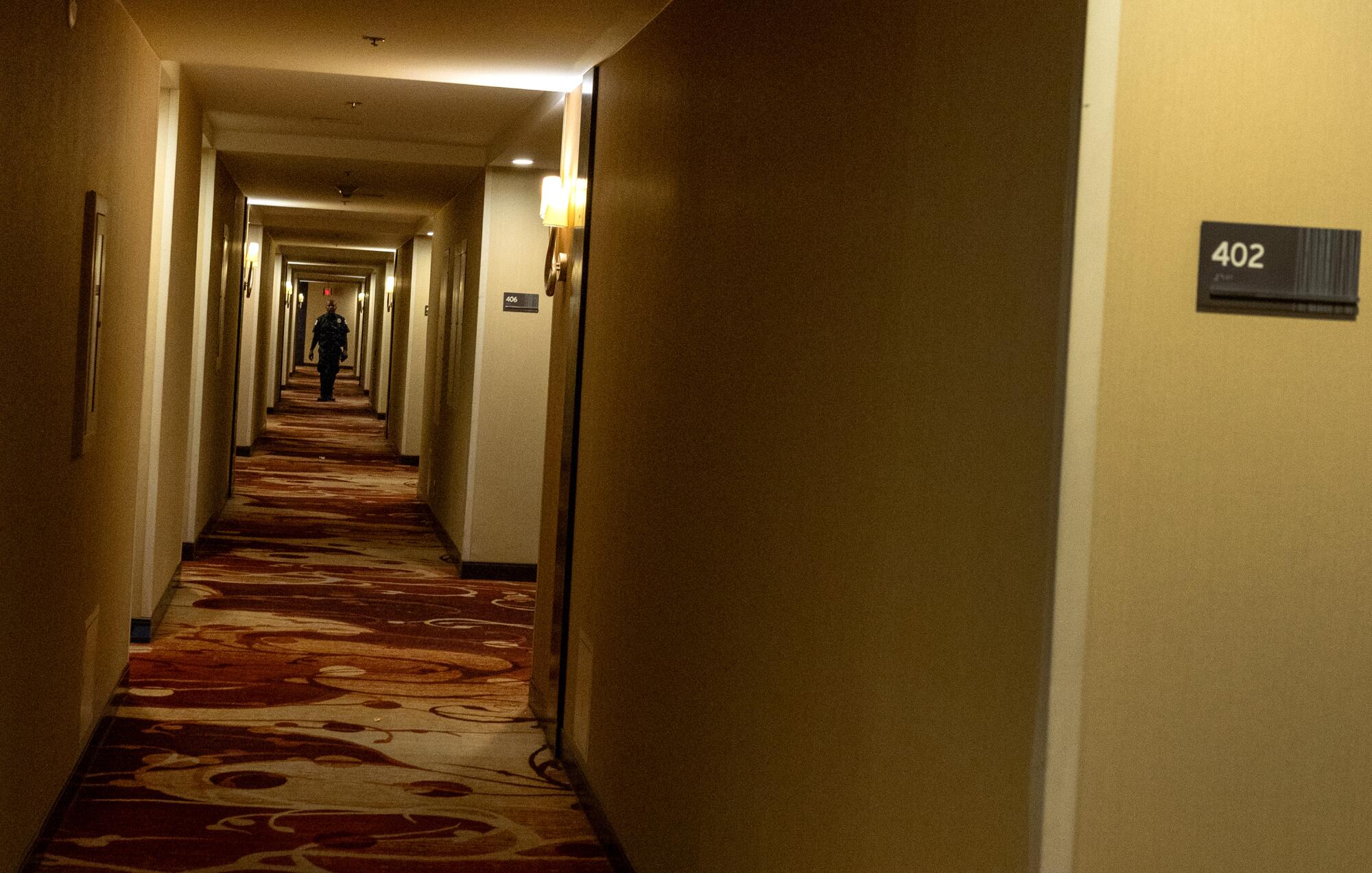
“I’m not against the Inside Safe program. I want all the homeless people to have a safe place to live. But they can’t be doing that while my education and the education of my peers are at stake,” student Alex Hernandez said. “I feel threatened because this is very dangerous.”
Times staff writer David Zahniser contributed to this report.
More to Read
Start your day right
Sign up for Essential California for news, features and recommendations from the L.A. Times and beyond in your inbox six days a week.
You may occasionally receive promotional content from the Los Angeles Times.
